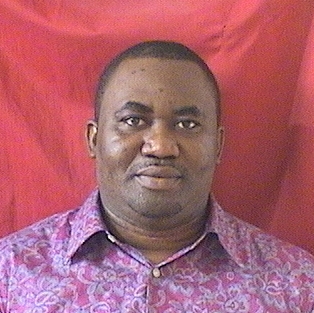Profile
Dr. Stephen Appiah Takyi is a planning educator whose research interest is in the area of Environmental Planning, Sustainability, Urban Planning and Development Policy Planning. The complex interrelationship between economic, social and environmental goals makes it necessary to have scholars with strong academic background and research interest that focus on economic, social and environmental policy discourse. Dr. Takyi’s approach to research acknowledges the complexity of societal problems in our world today. He therefore emphasizes on the need to approach complex societal problems from a multidisciplinary and interdisciplinary perspective. The academic background and stream of work of Dr. Takyi at the undergraduate level focused on Development Policy Planning with emphasis on economic planning. Dr. Takyi’s specialization at the master’s degree level was in the area of urban and regional planning whilst his doctoral research focused on environmental planning with the scope being in the area of park planning and management. Dr. Takyi holds a bachelor’s degree in planning specializing in the Development Planning from the Kwame Nkrumah University of Science and Technology, Kumasi, Ghana. He also holds a master’s degree in urban and Regional Planning from Queen’s University, Kingston, Ontario and a Ph.D. in Natural Resource and Environmental Studies from the University of Northern
In terms of work experience, Dr. Takyi taught Introduction to Planning and Environmental Impact Assessment at the UNBC School of Environmental Planning from 2012 to 2016. Within the same period, he was in charge of the editorial desk of the Journal of Architectural and Planning Research (JAPR), a scholarly blind refereed journal which has published for over 35 years. Stephen also worked as a Writing Tutor at the UNBC Academic Success Center. Additionally, Dr. Takyi has held a number of positions at the consultancy and administrative level. In the area of communication, Dr. Takyi worked as a Marketing and Communication Assistant at the Queen’s University Marketing and Communication Department from 2009 to 2011. This coupled with his experience in public consultation has contributed immensely to my strong communication skills. Dr. Takyi is currently a Senior Lecturer at the Department of Planning, Kwame Nkrumah University of Science and Technology.
Through his work as a consultant, Dr. Takyi has worked with local government institutions and international agencies such as the World Bank, Newmont Ghana Gold Limited, USAID, Solidaridad West Africa and District, Municipal and Metropolitan Assemblies in Ghana. In 2025, Dr. Takyi was part of a team of consultants who conducted a perception survey for Newmont Ghana Gold Limited. He also served as a consultant for the mid-term evaluation of the next generation cocoa youth program (MASO) and the assessment of the USAID/Ghana’s improving productivity and income of maize farmers in the SADA Region (IPIMFS). Dr. Takyi has enormous experience in the preparation of strategic plans. He was among a team of consultants who prepared a Strategic Plan for the Fapim Company Limited, the KNUST School of Graduate Studies and the International Programmes Office of KNUST. He has taught and conducted research on Environmental Sustainability, Environmental Impact Assessment, Strategic Planning, Development Policy Planning, Spatial Analysis, Urban Sustainability and Monitoring and Evaluation. He is also a resource person for the AACE Evaluation Training Institute.
Dr. Takyi believes in educating the next generation of scholars from an interdisciplinary viewpoint and method. This must be approached by trying to link the complex relationship between economic, social, and environmental goals. Their complexity must be acknowledged and students must be given the necessary skills to negotiate and reconcile these complex goals in the decision-making process. For the society to fully benefit from the expertise of planners, planning programs must introduce and encourage young professionals to shift from the traditional technical role of planners to become advocates, change agents and sometimes politicians based on the context. This will facilitate the ability for planning scholars to link their research outcomes and findings to solving societal problems whilst at the same time informing policy making decisions. Stephen, therefore, focuses on training the next generation of planners in an ideal societal laboratory where students learn how to apply and test particular approaches to planning and community development.
In the area of research, Dr. Takyi has published over 70 articles in high impact peer review journals. His work on “Comparative Study of Capital City Elements: The Case of Ghana and Nigeria” received the 2017 African Geographical Review second best paper ward. In 2019, he won the Ghana Institute of Planners best candidate award. Dr. Takyi also received the KNUST Research Fund in 2020 as the Principal Investigator. Dr. Takyi also won an award at 2022 Science and Communications Awards organized by Conversation Africa. In 2023, Dr. Takyi was elected as the Vice President of the Ghana Institute of Planning. Towards this end, Stephen is currently focusing his research on land grabbing in the Ghanaian context, nature-based solutions in urban centers in Ghana, land conflicts in urban centers and environmental planning in the sustainability discourse. Stephen has supervised three (3) Ph.D. students, five (5) MPhil students, 40 MSc. students and 88 undergraduate students.

